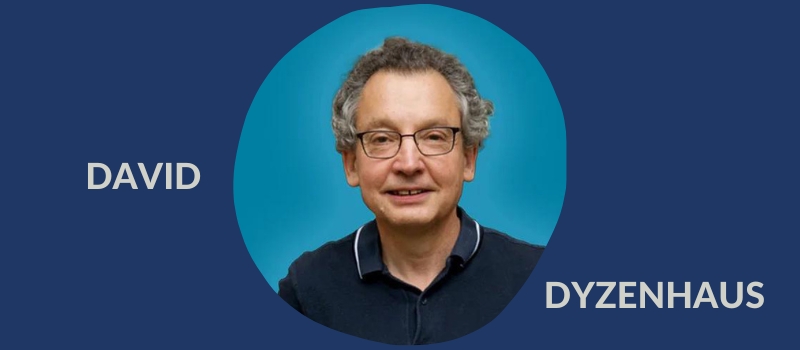
David Dyzenhaus, a University Professor of Philosophy and Law at the University of Toronto, has received the prestigious Killam Prize for social sciences.
The Killam Prize recognizes researchers at Canadian universities who have achieved international scholarly eminence in one of five fields: health sciences, natural sciences, engineering, social sciences or humanities. The National Research Council Canada administers the national program with each prize valued at $100,000.
Dyzenhaus researches the idea of legality in philosophy of law and political thought, constitutionalism, and the modern legal state. His political philosophy expertise includes the works of 17th-century English philosopher Thomas Hobbes.
“My unusual take on Hobbes is that one finds in him the first sophisticated theory of the modern legal state and the rule of law,” says Dyzenhaus.
University Professor of law and philosophy Arthur Ripstein, Howard Beck, Q.C. Chair and acting chair of the department of philosophy, describes Dyzenhaus as “the world’s foremost scholar of the role of the rule of law in democratic societies under stress.” Ripstein, himself a Killam Prize recipient, adds: “David has shaped debates by demonstrating the relevance of seemingly abstract issues in legal philosophy to the most pressing problems of legal practice, showing how a commitment to government in accordance with the law is also always a commitment to governing in a way that respects the status of those who are governed as free and equal human beings.”
“The Killam Prize is one of the most prestigious accolades that can be bestowed upon a Canadian scholar,” states University Professor Jutta Brunnée, Dean of the Faculty of Law and James Marshall Tory Dean’s Chair. “David’s contributions to legal philosophy and his work defending the rule of law globally have influenced generations of scholars. This recognition from the National Research Council Canada underscores the remarkable impact of his research.”
Dyzenhaus, who holds U of T’s Albert Abel Chair of Law, is a fellow of the Royal Society of Canada and a corresponding fellow of the British Academy. He has received many awards and honours, including a fellowship from the Royal Society of Canada and a 2020 Guggenheim Fellowship. In 2023, he received the Gold Medal, the highest research honour awarded by the Social Sciences and Humanities Research Council (SSHRC).
This award marks the third time the prize has gone to a scholar from the Department of Philosophy in the past decade. Ripstein received the Killam Prize for humanities in 2021, and Tom Hurka did the same in 2017. In addition, the inaugural Killam Prize for humanities, in 2002, went to Ian Hacking.
SHARE